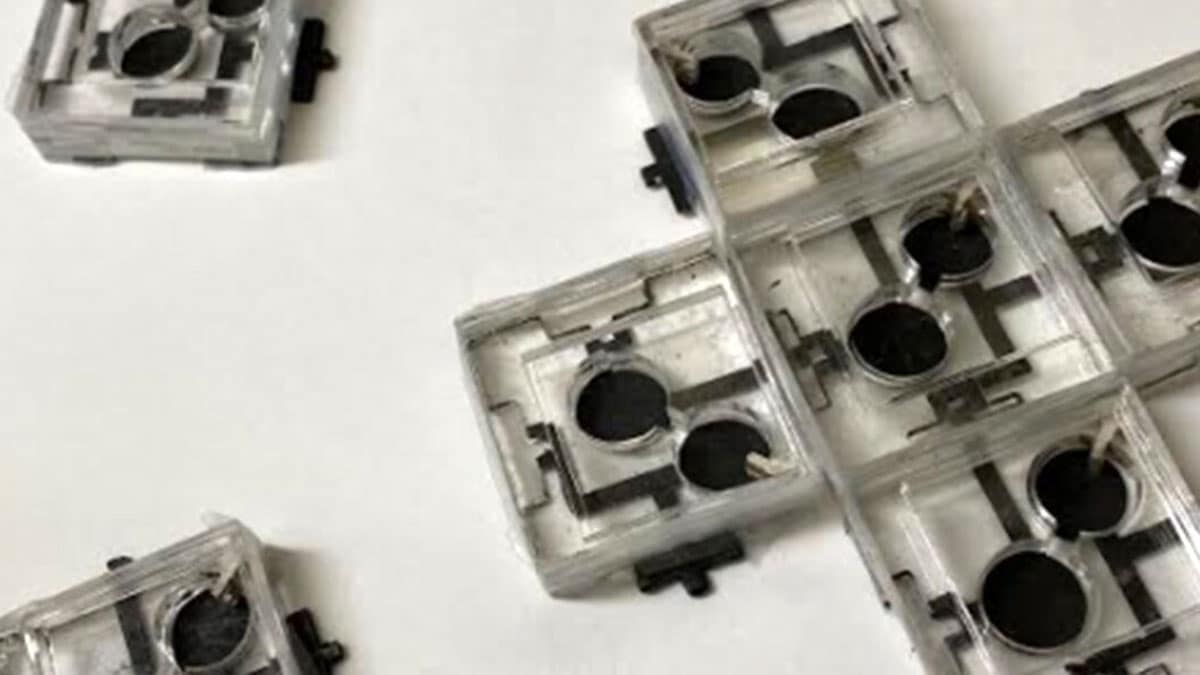
Engineers at Binghamton University have developed a new “plug-and-play” biobattery that lasts for weeks at a time and can be stacked to improve output voltage and current.
The latest battery comes from Professor Seokheun “Sean” Choi – a faculty member in the Department of Electrical and Computer Engineering at Binghamton University’s Thomas J. Watson College of Engineering and Applied Science – who has been working for years on biobatteries, which generate electricity through the bacterial interaction. The batteries had a lifespan limited to a few hours, which could be useful in some scenarios but not for any kind of long-term monitoring in remote locations.
So for the new study, Choi set out to make longer-lasting biobatteries. Previously, Choi’s team used a two-bacteria system to generate power for their biobatteries, but the new iteration contains three layers of different bacteria species in separate vertical chambers, which together take in sunlight and produce electricity.
“A photosynthetic bacteria generate organic food that will be used as a nutrient for the other bacterial cells beneath. At the bottom is the electricity-producing bacteria, and the middle bacteria will generate some chemicals to improve the electron transfer,” said Choi.
The team tested biobatteries that measured 3 centimeters by 3 centimeters square and found that they could generate electricity for weeks at a time. By connecting multiple biobattery modules, an actual wireless telemetry system was successfully operated, ensuring the practical efficacy of this power supply for real-world wireless sensor network applications.
In future work, the team will focus on creating a package that can float on water and perform self-healing to automatically repair damage incurred in harsh environments.
New plug-and-play modular biobattery generates power for weeks
Source: Global Access News

No comments:
Post a Comment